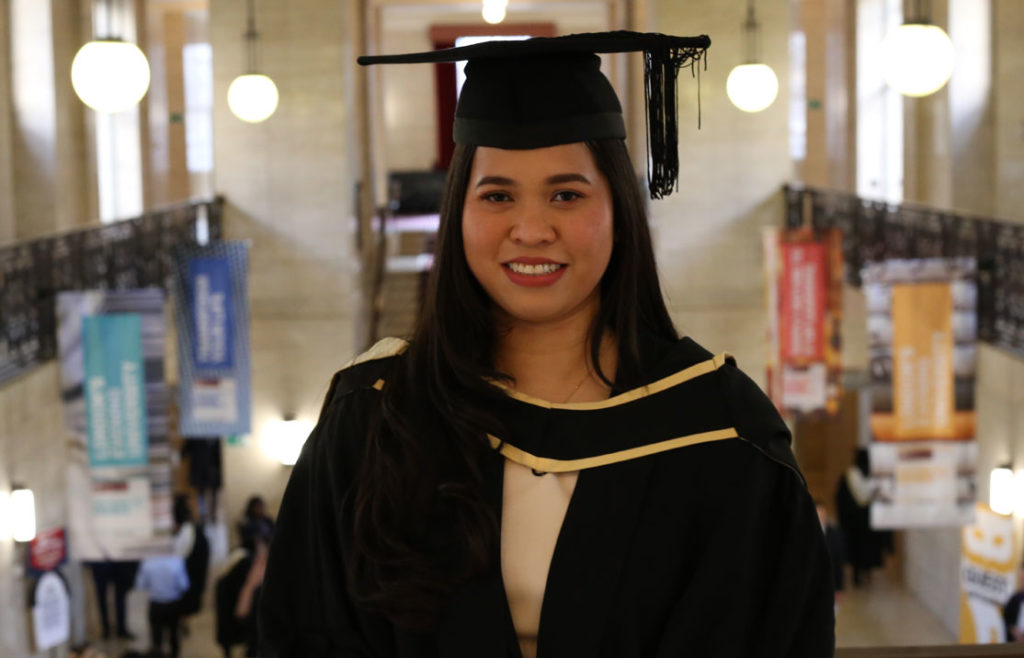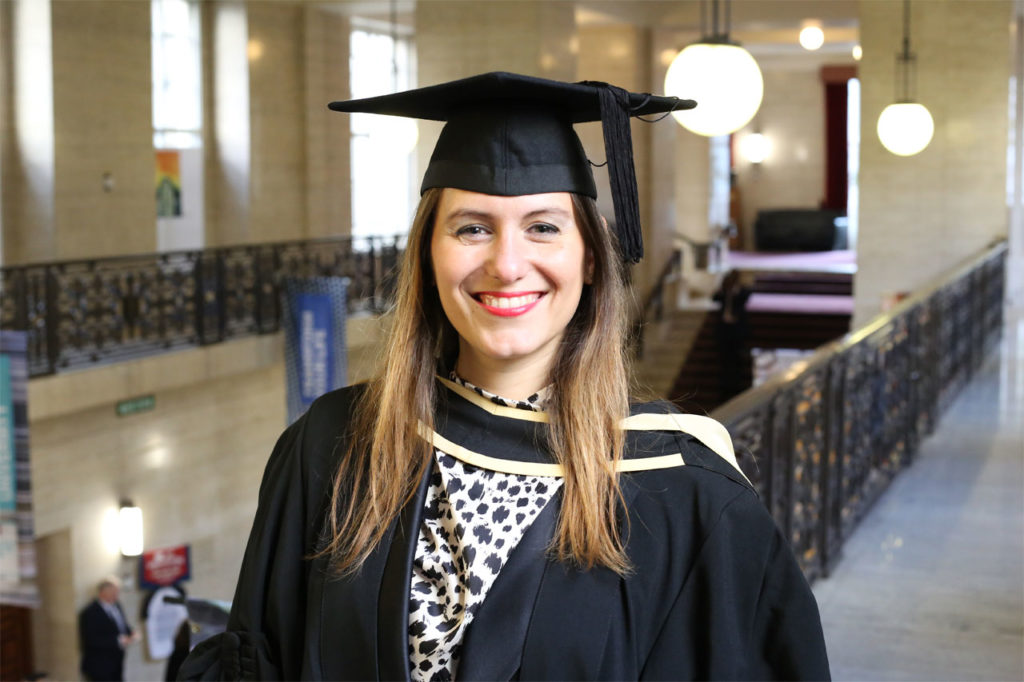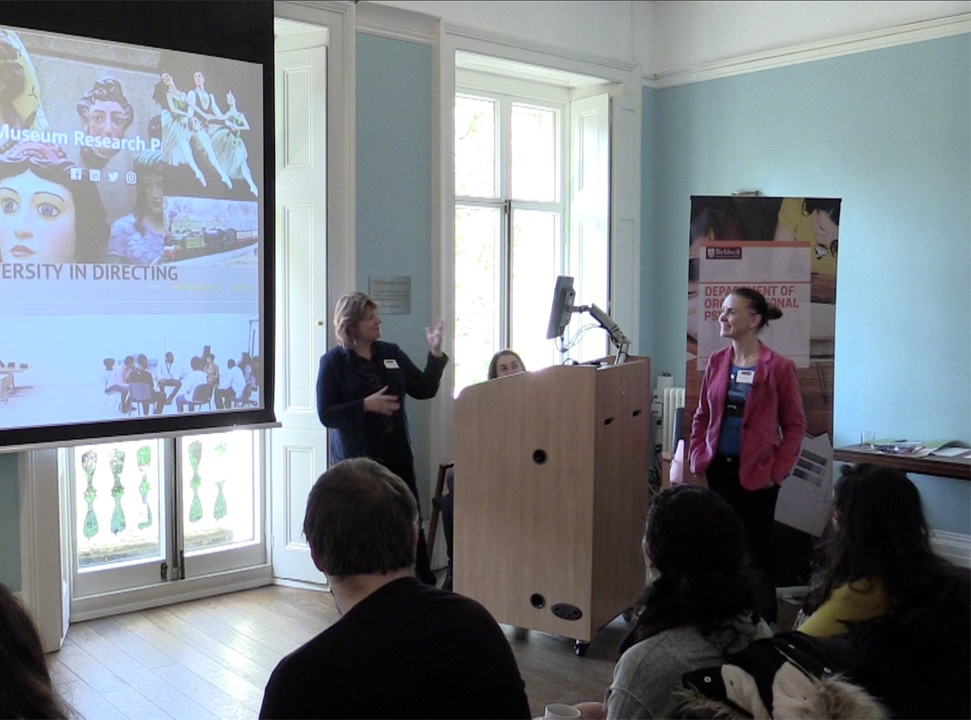Ever since she was forced to drop out of university for financial reasons, Grace Jaro has dreamed of graduating. This week, she graduates with a BSc Business with Accounting from Birkbeck and wins the prize for Best Overall Business Student.
For Grace Jaro, graduation day has been a long time coming. Having begun her studies in the Philippines, where student loans weren’t available, she was forced to drop out halfway through when her family encountered financial difficulties.
“In my country, if you’re poor, it’s difficult to finish your studies,” she explains. The next time Grace thought seriously about continuing her education, she was married and taking care of her young daughter. “I had offers from other universities, but Birkbeck was the only place that offered the flexibility I needed. I wanted my mornings free to look after my child and undertake volunteering roles.”
Coming back to the classroom after a twelve year gap was a daunting experience at first. “I missed my daughter a lot and my first essay was a total failure,” explains Grace, “I got 35! I was writing the way I was used to in the Philippines; I didn’t know that here you’re supposed to put forward an argument. I was really disappointed with that mark, but when you have a goal, you have to be focused. I asked my lecturers for guidance and advice. I studied hard, did a lot of independent research, and the best essay mark I ever got was 79.”
Grace credits the support she received from Richard Carabine, Learning Co-ordinator for the School of Business, Economics and Informatics for helping her improve, admitting she found the numbers side of the course much easier.
“The brilliant thing about Birkbeck is that everyone here is so friendly. You can always ask the lecturers for advice, and because the business school has the departments of Management as well as Economics, Mathematics and Statistics, there’s someone to help with whatever part of the course you’re struggling with.
“Graduating is a really huge achievement for me. Achieving a first class honours (or Summa Cum Laude in the Philippines) is a bonus, and this Best Overall Business Student award is another dimension of accomplishment for me. I’m completely thrilled and honoured, my goal was to get a first, and I went beyond it!”
So, what advice does Grace have for current and future students?
“If you love your subject and you have the determination, you can cope with the work. And if you have a family and/or a career, Birkbeck is the best university that you can go to. It was my childhood dream to graduate and wear that black academic gown – although now I don’t know what to wear for the ceremony!”
Grace is now looking for a role in accountancy or finance. “In terms of a dream job, I’d love to be a head of finance someday– why not? Dream big, aim high, reach far, but always stay humble.”
Further Information:




